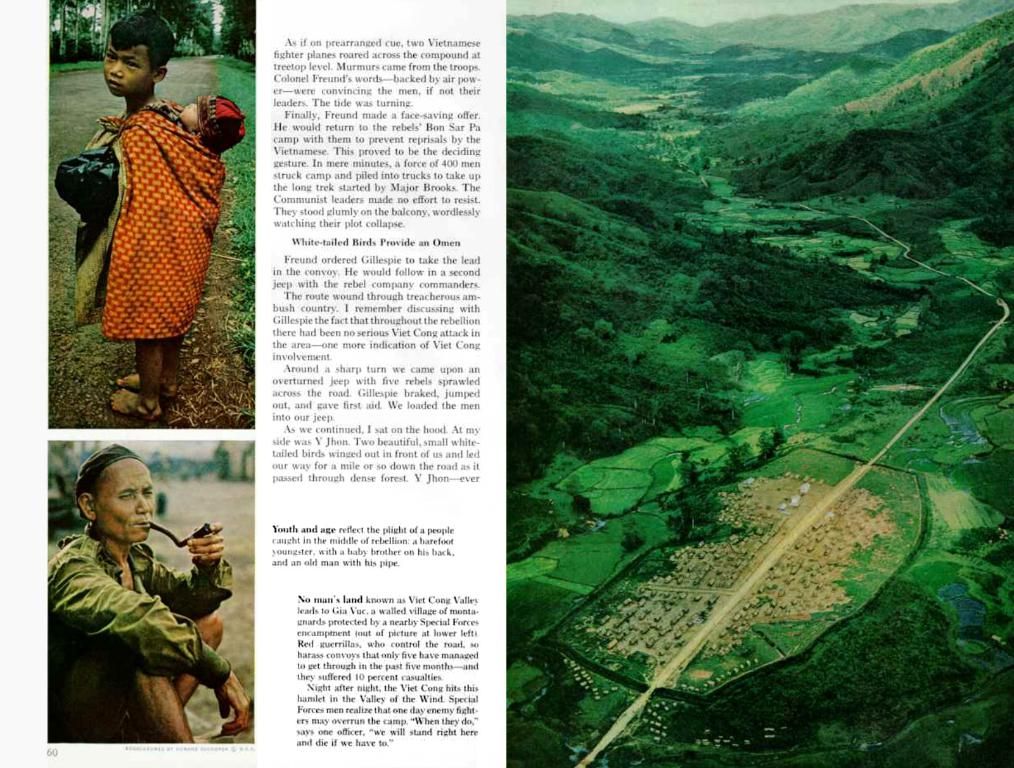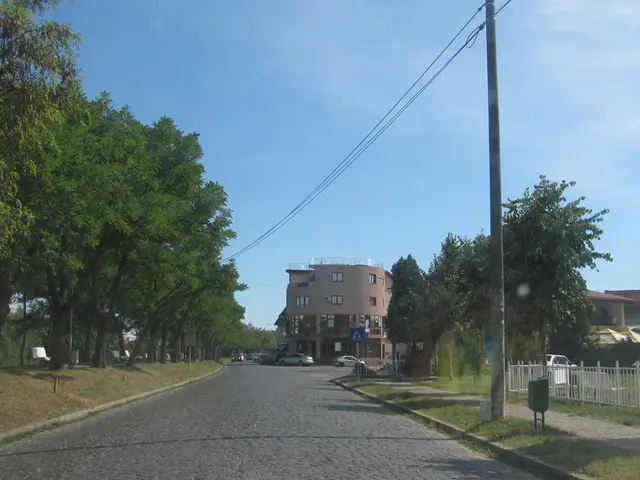International unity in a fractured global landscape: Discussions, commerce, and climate efforts at the Astana Forum
Ahead of the Future: Astana International Forum Connecting Nations
Hear the voices of influential global leaders, policymakers, and industry experts as they gather in Astana for the international debate, Astana International Forum (AIF). This event, themed "Connecting Minds, Reshaping the Horizon" attracted more than 160 speakers and an impressive attendance of over 7,000 participants.
The opening session set the tone as world leaders addressed pressing global issues, including growing polarization, conflicts, and their economic impact. Among them was President Kassym-Jomart Tokayev of Kazakhstan, who expressed concern over rising confrontation and the loss of 13.5% of the world’s GDP due to ongoing conflicts in 52 nations.
Rwandan President Paul Kagame acknowledged the interconnected nature of global challenges, emphasizing the importance of integrated solutions. Gordana Siljanovska-Davkova, President of North Macedonia, addressed the need for reform in the United Nations given the organization’s outdated bylaws.
The two-day agenda featured panel discussions, side events, and one-on-one sessions focusing on various dimensions of trade, transportation, green energy, carbon neutrality, climate action, economy, finance, AI development, and more.
Trade: The Two Sides of the Coin
A vital hub for trade connections, the AIF served as a platform for French and Italian companies to meet with Kazakh businessmen, agreeing on several projects, including a €90 million venture for a hydrogen production plant to reduce carbon emissions and a €180 million investment plan covering logistics, engineering, agriculture, digitalization, and green energy projects.
The negative impact of trade was also addressed, commenting on the weaponization of trade for short-term interests, while acknowledging the importance of a goal-oriented approach.
Transit in the Middle: The Significance of Central Asia
Central Asia’s importance as a transportation hub between Europe and China was a major point of discussion. The significance of the Middle Corridor and its future development was highlighted, with experts estimating that infrastructure investments of $15 billion have already been made and transportation times have significantly reduced.
However, some argued that while the Middle Corridor could be a short-term solution, it may remain costly for certain goods traveling overland.
Climate Crisis: Funding the Green Agenda
With temperatures in Central Asia projected to rise by almost twice the global average in the next 70 years, the region is particularly vulnerable to the risks of climate change, including water, food, economic, and employment challenges. To address these threats, Central Asia requires significant funding, but currently receives less than 1% of global climate financing.
Renewable Energy: The Power of the Wind
As the world shifts towards green energy to combat climate change, Kazakhstan's potential for wind energy was highlighted, with its vast steppes capable of generating 1 billion kWh per year – enough to cover the country's energy needs and export the rest.
The development of renewable energy infrastructure drives the demand for rare earth elements, which are crucial for the production of clean technology. With significant reserves, Central Asia could play a vital role in meeting this demand.
AI Regulation: Shaping a Responsible Future
The potential of artificial intelligence was a recurring theme during the forum, with speakers emphasizing its immense benefits as well as the need for responsible and ethical use. Kazakhstan is working towards regulating AI use to prevent abuses and preserve digital freedom.
Moving Forward: Uniting in Shared Vision
Over two days, the AIF served as a platform for dialogue, exchange, and collaboration. The event brought together diverse perspectives on critical global challenges, striving for fresh ideas and common ground, fostering a shared commitment towards creating a more stable and sustainable future.
Additional Reads:- Kazakhstan's increasing oil production strengthens position in global energy market- Deals worth €7bn signed during Meloni's visits to Uzbekistan and Kazakhstan- Kazakhstan boosts support for SMEs to attract European investments and spur economic growth
Central Asian Cooperation- Central Asian countries aim for regional development at Termez Dialogue- Kazakhstan seeking stronger ties with European Union for economic growth and political stability- Kazakh government's economic reforms attract foreign investments
Related Topics:- Global Challenges- Trade Agreements and Economic Opportunities- Central Asia- Climate Crisis and Sustainable Development- Renewable Energy and Resources- Artificial Intelligence and Digital Transformation- Geopolitics and International Diplomacy
- The two-day AIF agenda included discussions on the development of renewable energy, with Kazakhstan's potential for wind energy highlighted, capable of generating 1 billion kWh per year.
- With the importance of green energy and carbon neutrality reviewed, the event saw the agreement on a €90 million venture for a hydrogen production plant, aiming to reduce carbon emissions.
- As AI and digital transformation were major topics, speakers emphasized the need for responsible AI regulation, with Kazakhstan working towards rules to prevent abuses and preserve digital freedom.
- Addressing the climate crisis, Central Asia's vulnerability to the risks of climate change was acknowledged, requiring significant funding to tackle the threats, yet currently receiving less than 1% of global climate financing.








